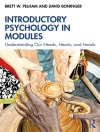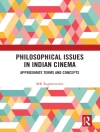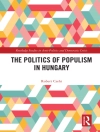There is widespread debate in contemporary philosophy of mind over the place of conscious experiences in the natural world – where the latter is taken to be broadly as described and explained by such sciences as physics, chemistry and biology; while conscious experiences encompass pains, bodily sensations, perceptions, feelings and moods. Many philosophers and scientists, who endorse physicalism or materialism, maintain that these mental states can be completely described and explained in natural terms. Frank Jackson’s knowledge argument is a very influential objection to physicalism and, thus, to such an optimistic view about the scientific treatability of conscious experiences. According to the knowledge argument, we can know facts about our colour experiences that are not physical facts.At the heart of this book lies a response to the knowledge argument that aims to defend a version of physicalism, that the author calls modest reductionism. This reply is based on the endorsement of the phenomenal concept strategy. According to this response, the knowledge argument cannot prove that there are non-physical facts. Instead, it can only show that there are ways of thinking about colour experiences that are based on phenomenal concepts that differ from scientific concepts. The author argues for the superiority of the phenomenal concept strategy over other influential physicalist replies to the knowledge argument. However, he criticises some recent physicalist accounts of phenomenal concepts and develops his own distinctive theory of these concepts.
Luca Malatesti
Knowledge Argument and Phenomenal Concepts [PDF ebook]
Knowledge Argument and Phenomenal Concepts [PDF ebook]
Koop dit e-boek en ontvang er nog 1 GRATIS!
Formaat PDF ● Pagina’s 160 ● ISBN 9781443844406 ● Uitgeverij Cambridge Scholars Publishing ● Gepubliceerd 2012 ● Downloadbare 6 keer ● Valuta EUR ● ID 2611453 ● Kopieerbeveiliging Adobe DRM
Vereist een DRM-compatibele e-boeklezer












